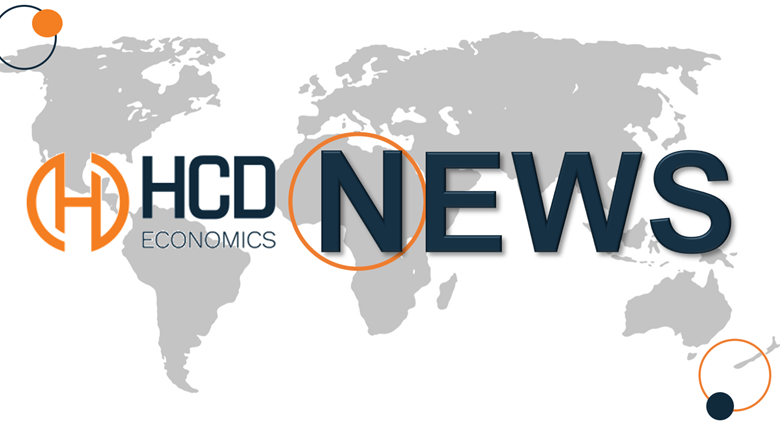
Tara and Melanie are members of the PICTURE (PFIC Disease Burden of Illness: Quantifying the socioeconomic burden in the US, UK, France and Germany) Expert Review Group (ERG) and both are on the team of co-authors of a peer review paper published on 7th January 2021, in the journal ‘Expert Review of Pharmacoeconomics and Outcomes Research’ (impact factor 2.032), the paper reports on the study rationale and protocol of the PICTURE study
In celebration of the launch of the HCD Economics/University of Chester study ‘PICTURE’ we publish an interview with Melanie and Tara, from the leadership team of PFIC.org, the PFIC Advocacy and Resource Network. PICTURE seeks to quantify the clinical, economic, and humanistic burden on PFIC patients, on their caregivers, and ultimately on society across the United States of America, France, Germany, and the United Kingdom. An additional goal of this study is to support the clinical implementation of new therapies emerging in the PFIC treatment landscape.
HCD Economics is delighted to welcome Melanie Karakaidos and Tara Kearns to our Website feature - ‘Meet the Partners’ Tara Kearns & Melanie Karakaidos - PFIC: HCD Economics
In the interview Melanie and Tara share the story of the recent history of PFIC.org and the important milestones that chart the progress of that story from its foundation in 2002 to the pivotal achievement in 2018 of 501 C3 non-profit status. A 501(c)(3) corporation is a non-profit organization that does not have to pay United States federal income taxes. In practical terms 501 C3 means PFIC.org can offer advocacy, research, educational materials to any PFIC family or patient around the world, and the organisation asserts that it takes on this role with dedication and commitment.
Along the journey, the formation in 2007 of the PFIC Facebook group, described by Melanie as ‘the PFIC hub’ offered a place where support, information and stimulated the networking between clinicians and patients. The present leadership team came together in 2016, to continue the pioneering website that formed the basis of today’s expansion into programme and education activities. From a key milestone in 2016, with the first opportunity of linking to other parents ‘face-to-face’, the community today numbers 572 members.
Tara summarises advocacy examples including political engagement and FDA outreach, along with collaboration with the wider Rare Disease community. Global advocacy is an important ambition and Melanie shares an interesting Australian case study in the interview. Advocacy covers an extensive range of initiatives, including webinars on ambassador training, mental health, the drug development process, PFIC 101, subtypes of PFIC. The webinars are led by PFIC experts from around the World. These will soon be available of the PFIC.org website.
Conferences play an important advocacy role including participation and speaking at scientific meetings plus the first PFIC.org conference for families, organised in June 2020. The organization has recently launched a patient registry.
Tara and Melanie are co-authors on the PICTURE paper published on 7th January 2021, in the journal ‘Expert Review of Pharmacoeconomics and Outcomes Research, Melanie comments that PICTURE (a global, ethical, nonbiased methodology) is the ‘exact type of research’ the PFIC community need.
PFIC.org ideas for the practical deployment of the evidence that will be drawn from the data include use as content on social media platforms (to educate and validate), use in discussions with physicians and researchers who demand measurable data and use in educational and advocacy materials. PICTURE is seen as a source of data that is scientific and accessible and its contribution is seen as leading to progress towards better outcome for PFIC families and patients.
This joint interview shares the very personal journey Tara and Melanie have taken in their shared (along with their other PFIC leadership colleagues) commitment to the PFIC community, expressed in intensive advocacy, education and research activity. Go to LINK for the full interview.
Tara comments ‘Socioeconomic evidence gives PFIC a human aspect that science alone lacks. This evidence is what helps other connects to the heartbreak and devastation this disease causes families and helps to build empathy, compassion and a desire to work hard alongside our community to reach better outcomes and opportunities’
Melanie states ‘I am proud of the advocacy work I continue to do with the pharmaceutical companies ensuring they understand the unique and nuanced needs of our community. I’m also proud of the peer support I have been able to provide to other parents around the world. I will never stop supporting a parent/patient that reaches out for help because I know the horrendous pain of feeling so helpless and alone- we dearly hope we are changing this’.
PICTURE will be the first and only international multicentre study to assess the burden of the disease in a cohort of PFIC patients from a societal perspective
The full manuscript is available now Full article: Burden of illness of progressive familial intrahepatic cholestasis in the US, UK, France, and Germany: study rationale and protocol of the PICTURE study (tandfonline.com)
For more information on the PICTURE study please contact Sonia O’Hara sonia@hcdeconomics.com.
For more information on earlier and future studies that will employ the real world evidence methodology employed for PICTURE please contact Alison Rose alison.rose@hcdeconomics.com